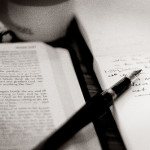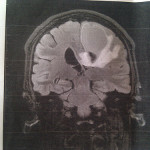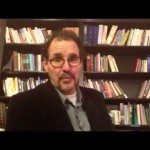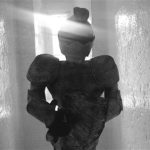We run our website the way we wished the whole internet worked: we provide high quality original content with no ads. We are funded solely by your direct support. Please consider supporting this project.

Do You Argue With God?
Image by michael_swan via Flickr
In sharp contrast to many today who seek the comfortable feeling of certainty as a way of feeling at peace with God, biblical heroes are better known for their willingness to be uncomfortable and to honestly wrestle with God. Like Jacob who wrestled with God through the night (Gen 32), the heroes of faith listed in Hebrews 11 questioned, challenged, argued, and even objected to God’s actions. The father of faith, Abraham questioned God’s justice when he announced his plans to destroy Sodom and Gomorrah (Gen 18:20-33). We see the same several times in the life of Moses. For example, he once boldly objected when God privately told him he was so angry with the Israelites that he planned on destroying them to start over with Moses alone. Moses’s bold intercession succeeded in changing God’s mind and he thereby spared the nation (Ex 32:10-14). In fact we find dozens of examples in the OT of people responding to God’s announced plans by interceding and changing his plans.
Biblical heroes of faith frequently objected to God’s actions—or at least what they thought were his actions. One of the greatest prophets in the history of Israel, for example, was Jeremiah. Yet throughout the book of Jeremiah, as well as its sequel, Lamentations, we find Jeremiah complaining of God’s apparently unjust treatment of him and God’s people as a whole while the wicked have it easy (e.g., Jer. 12:1; 14:8-9; 15:18). His bewilderment and honest objections become especially acute and are mixed with anger and sorrow in Lamentations, written in the wake of Babylon’s seizure of Judah. Read this brief work, and you will find Jeremiah sorrowfully crying out that God has acted like an enemy and a vicious predator (e.g., 2:4-5; 3:1-21) and ascribing to God absolutely barbaric behavior such as ruthlessly slaying young people (Lam 2:21) and causing mothers to eat their own babies (2:20;4:10-11)!
The prophet Habakkuk also is similar. He acknowledges to God that “your eyes are too pure to look on evil” and that “you cannot tolerate wrong-doing” (1:13). But precisely because he believes this, he raises this complaint:
Why then do you tolerate the treacherous?
Why are you silent while the wicked
Swallow up those more righteous than themselves? (1:13)
Sprinkled throughout the book are expressions of anger and confusion about God’s apparent inconsistency, especially as he allows pagans to conquer and abuse his own people.
As is apparent in so many OT heroes, the faith of Habakkuk was obviously nothing like we of think of faith today, that is certainty-seeking and doubt-shunning. They didn’t avoid cognitive dissonance by slapping the “mystery” label on things that seemed like contradictions. Habakkuk and others went to the mat with God. And far from being offended by this raw honestly, God is the One who blessed them with it! For instance, Jacob was blessed by God when given a new name, Israel, after wrestling with God all night, an act that reveals his core identity and character. This apparently is precisely the kind of honest relationship, and the kind of honest faith, God is looking for!
—Adapted from Benefit of the Doubt, pages 82-83
Category: General
Tags: Benefit of the Doubt, Doubt, Faith, Wrestling with God
Topics: Apologetics
Related Reading

Speaking of Doubt
Xava du via Compfight As long as we’re on the topic of faith and doubt, here’s an excellent piece by Richard Beck on The Gifts and Benefits of Doubt. Are you struggling with doubt and feeling like a spiritual loser for it? We think you’ll appreciate Beck’s insight on this. From the article: The assumption…

Interview with Drew Marshall
Greg was interviewed by Drew Marshall on Saturday, November 2, on the topic of his new book Benefit of the Doubt, and we thought you might like to listen to what he had to say. You can find the interview here. Enjoy!

How To Seek Theological Truth
If we are really interested in embracing true beliefs, then the last thing we would ever do is to try and convince ourselves that we already embrace true beliefs. A genuine concern for the truth is simply incompatible with a concern to feel certain that one already believes the truth. If a person is really…

Why Did God Heal or Not?
In 1996 a 27-year-old man in my church named David was diagnosed with an inoperable brain cancer. The doctors decided to send David to the Mayo Clinic to receive some experimental treatments on the slim hope these might at least prolong his life. The night before David left, I and a dozen other people went…

Why Bart Ehrman Doesn’t Have to Ruin Your Christmas (Or Your Faith) Part 4
This is the fourth of several videos Greg put together to refute Bart Ehrman’s claims published in the article What Do We Really Know About Jesus? We hope you’re enjoying these! They really provide a great overall approach to Biblical Criticism. If you missed the first three installments you can find them here, here and here.

Put on the Armor of God
The whole of the Christian life is an act of war against the enemy as we follow Jesus in storming the gates of hell (See post.) No passage better illustrates this than Paul’s metaphor of spiritual armor from Ephesians 6. He writes that Christians are to “be strong in the Lord and in the strength…
